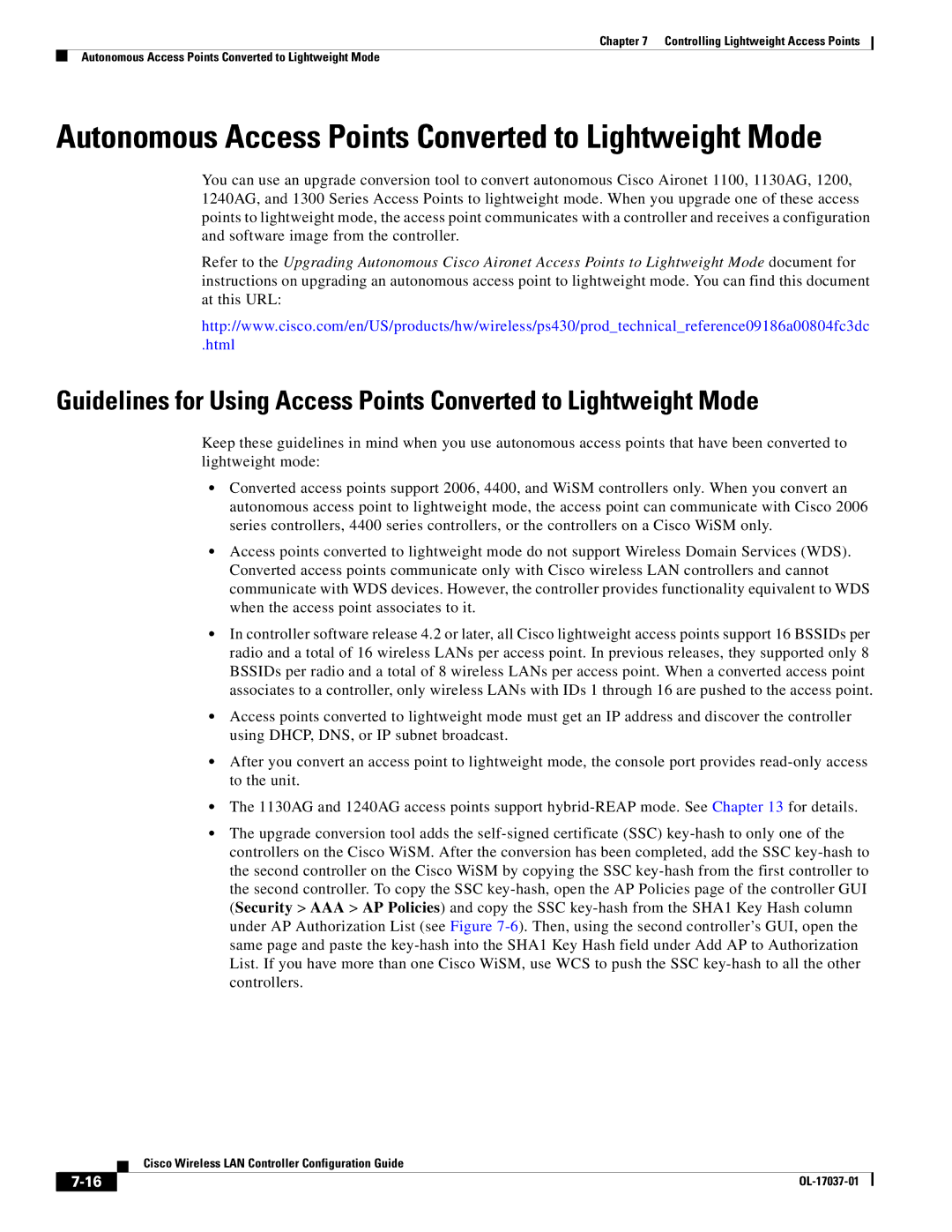
Chapter 7 Controlling Lightweight Access Points
Autonomous Access Points Converted to Lightweight Mode
Autonomous Access Points Converted to Lightweight Mode
You can use an upgrade conversion tool to convert autonomous Cisco Aironet 1100, 1130AG, 1200, 1240AG, and 1300 Series Access Points to lightweight mode. When you upgrade one of these access points to lightweight mode, the access point communicates with a controller and receives a configuration and software image from the controller.
Refer to the Upgrading Autonomous Cisco Aironet Access Points to Lightweight Mode document for instructions on upgrading an autonomous access point to lightweight mode. You can find this document at this URL:
http://www.cisco.com/en/US/products/hw/wireless/ps430/prod_technical_reference09186a00804fc3dc
.html
Guidelines for Using Access Points Converted to Lightweight Mode
Keep these guidelines in mind when you use autonomous access points that have been converted to lightweight mode:
•Converted access points support 2006, 4400, and WiSM controllers only. When you convert an autonomous access point to lightweight mode, the access point can communicate with Cisco 2006 series controllers, 4400 series controllers, or the controllers on a Cisco WiSM only.
•Access points converted to lightweight mode do not support Wireless Domain Services (WDS). Converted access points communicate only with Cisco wireless LAN controllers and cannot communicate with WDS devices. However, the controller provides functionality equivalent to WDS when the access point associates to it.
•In controller software release 4.2 or later, all Cisco lightweight access points support 16 BSSIDs per radio and a total of 16 wireless LANs per access point. In previous releases, they supported only 8 BSSIDs per radio and a total of 8 wireless LANs per access point. When a converted access point associates to a controller, only wireless LANs with IDs 1 through 16 are pushed to the access point.
•Access points converted to lightweight mode must get an IP address and discover the controller using DHCP, DNS, or IP subnet broadcast.
•After you convert an access point to lightweight mode, the console port provides
•The 1130AG and 1240AG access points support
•The upgrade conversion tool adds the
| Cisco Wireless LAN Controller Configuration Guide |
